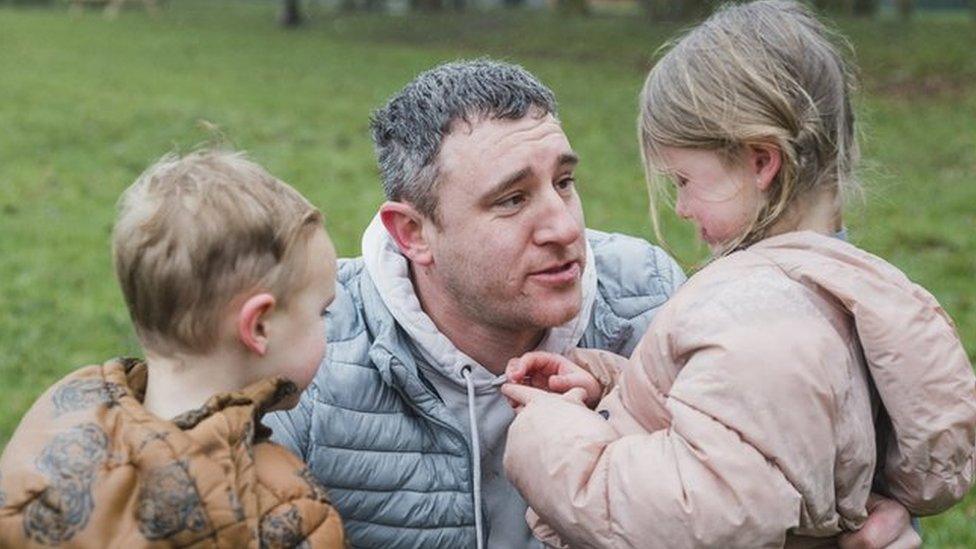I help people find housing - but still ended up homeless
- Published
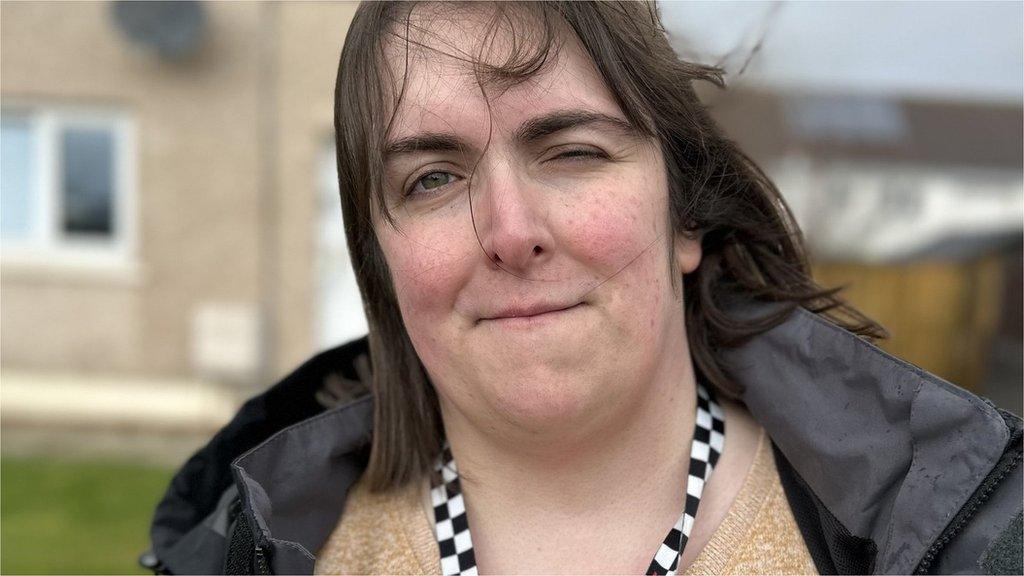
Housing officer Michelle Christie was forced to declare herself homeless
Eve McQueen found herself on the homeless register last year - alongside the woman who was helping her search for a new house.
Eve and two-year-old daughter Levi spent time in a hostel and homeless accommodation in Fife.
Her housing officer was Michelle Christie, who was forced to declare herself homeless after her landlord decided to sell her flat.
"Because I was going in and helping people with their tenancies, you wouldn't expect that the housing officer is actually going through homelessness themselves," she said.
"It was quite hard to hide my emotions at times."
Michelle, 33, told BBC Scotland News that she could empathise with those who found themselves homeless.
"I've been through it and I know how stressful it was for me. I get frustrated for them."
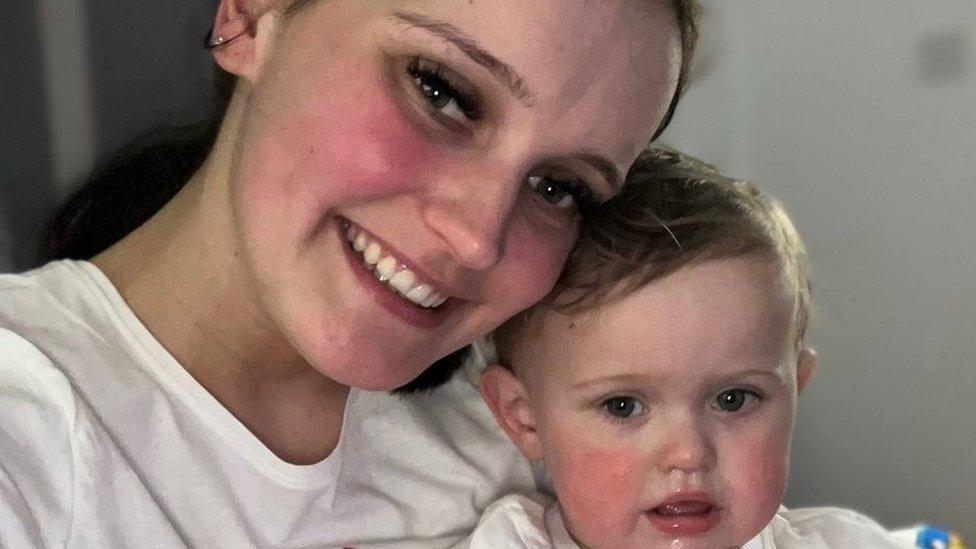
Eve McQueen and her daughter Levi spent time in a homeless hostel last year
Eve, 24, lost her private tenancy after a fire last year. She and Levi ended up in a hostel for a month, before spending several months in homeless accommodation.
"It was quite stressful because the bathroom in the hostel was down the hall," she said.
"If Levi was sleeping at night, I had to leave her and lock the door to go to the bathroom.
"I was quite anxious at the time, not knowing how long it was going to take. I just wanted stability for my child."
The family have now found a permanent home in Guardbridge in north east Fife.
Michelle said houses were being built in the area - but not enough to cope with the demand.
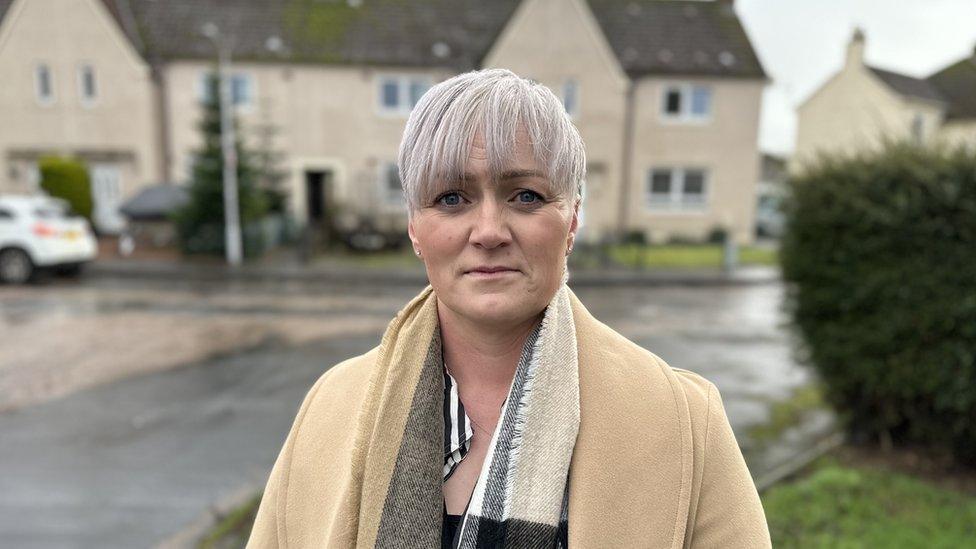
Housing manager Kirstie Freeman
Eve and Michelle were part of a growing number of people applying for homelessness in Fife last year.
Since 2019, the number of households in temporary accommodation in the area has increased by 67% from 694 to 1,162.
Meanwhile, homelessness applications increased by 36% - from 975 to 1,306. More than 12,400 people are on the housing waiting list - a rise of 13% since January 2019.
Housing manager Kirstie Freeman said pressure had increased because more private accommodation had been removed from the rental sector.
She said: "We can't always house people quickly and have the odd occasion where we have people in temporary accommodation for upwards of two years, just because we don't have anything that meets their needs.
"We need more resources and we need more properties to give to people, because at the moment we just don't have enough."
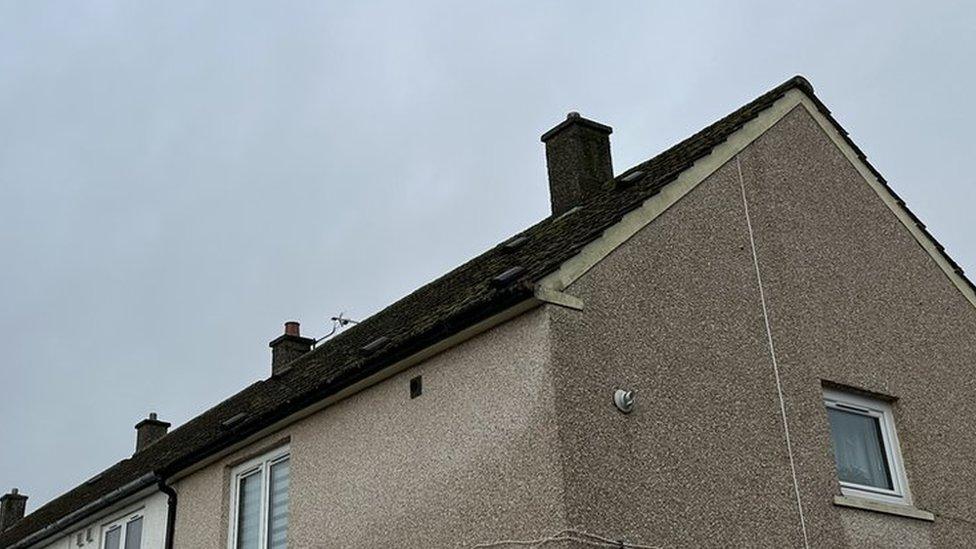
Fife Council has seen a surge in people living in homeless accommodation since 2019
Fife Council could become the fourth in Scotland to declare a housing emergency amid "unprecedented" pressures on social housing.
Councils in Edinburgh, Glasgow and Argyll and Bute, external, made similar announcements in 2023.
New statistics on homelessness in Scotland, external and the supply of affordable housing show the number of households in temporary accommodation in Scotland has increased to 15,625 - the highest level on record.
The data, which covers April to September last year, revealed the number of open homelessness cases reached record levels of 30,274, while the number of children in temporary accommodation went up by 8% at 9,860.
Housing charity Shelter Scotland said the Scottish government's claims it was making progress towards ending homelessness and building social housing looked like an attempt to "gaslight the Scottish public".
'We can't build if funding is cut'
Alison Watson, director of the charity, said: "The ongoing housing emergency in Scotland was not inevitable, it is a result of poor political choices and serious mismanagement across every tier of government.
"Anyone who backed that budget can't expect to be taken seriously in the future when they claim they're fighting homelessness."
Describing the figures as "sobering", housing minister Paul McLennan said the Scottish government was doing all it could by "making record funding available to councils of more than £14bn in 2024-25".
It comes as the Scottish Parliament looks set to approve a £196m cut to the affordable housing budget, which is dropping from £752m to £556m for 2024-25.
Fife Council's housing spokeswoman, Labour councillor Judy Hamilton, said these planned cuts to the Affordable Housing Supply Programme (AHSP) would damage plans to build 1,250 new homes a year in the area.
She said: "I don't want to use housing as a political football, but I think we are in an emergency situation.
"We are facing challenges, like private landlords leaving the business. People are turning more and more to social housing and we have unprecedented numbers of homeless people.
"The way out of this is to build more and we can't build more if the funding has been cut."
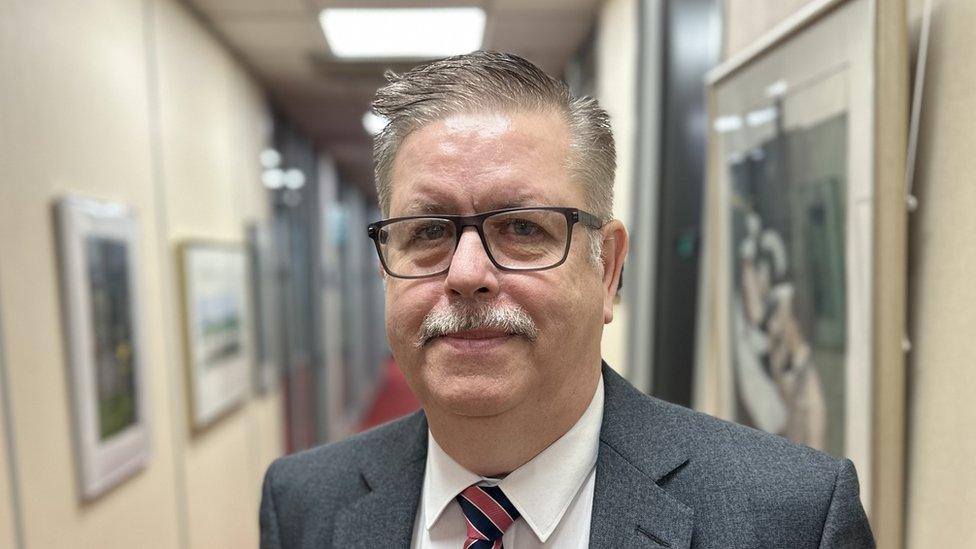
John Mills, head of housing at Fife Council
Head of housing John Mills said declaring a housing emergency would allow Fife Council to ask for help from government and the private sector.
He said construction costs and inflation had contributed to problems financing new housebuilding, and not enough homes were being built.
"I've been in housing for 40 years and never known it like this," he added.
The Scottish government's proposed cut to the AHSP budget has already drawn criticism from the construction industry, external and charities, who described it as a "hammer blow".
Sally Thomas, chief executive of the Scottish Federation of Housing Associations, said the proposal was likely to mean 2,500 fewer affordable home being completed each year.
"To have this additional enforced cut by the government means that the whole dream of social housing for Scotland is unravelling," she said.
In January, a briefing by the Scottish Parliament Information Centre, external said there had been a 23% fall in the number of new homes being started last year.
Attract more investment
It said 11,000 homes must be completed each year for the Scottish government to meet its target of 110,000 homes by 2032.
The paper added that "at current levels of approvals and site starts of nearer 6,000 a year, the target looks challenging".
Mr McLennan said the Scottish government had "led the UK in housing by delivering more than 126,000 affordable homes since 2007" and it would work with the financial sector to attract more investment in housing.
Mr McLennan also said Scotland had received a 10% real terms cut in capital funding from the UK government between 2023-24 and 2027-28.
"This is on top of the disastrous impact Brexit has had on construction supply chain issues, labour shortages and the inflationary pressures," he added.
He said the Scottish government remained focused on delivering 110,000 affordable homes by 2032.
- Published29 August 2023
